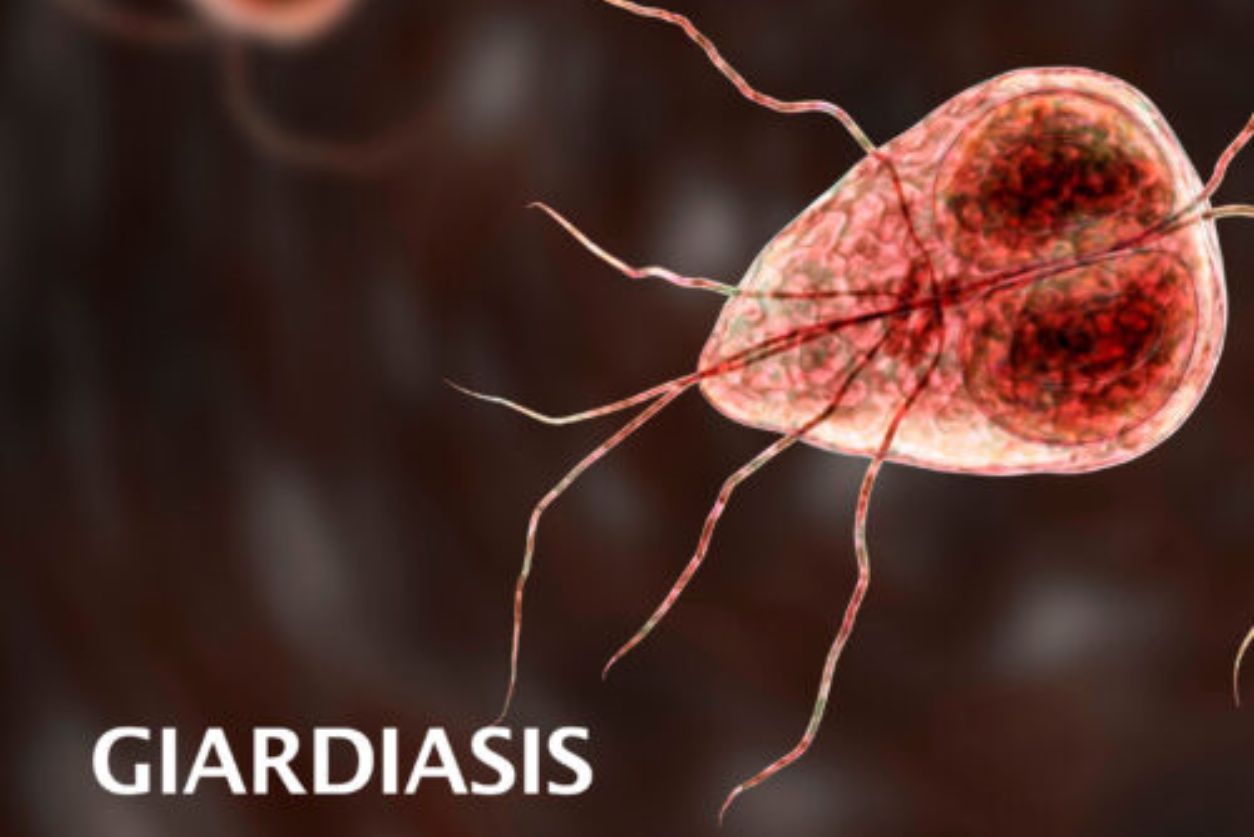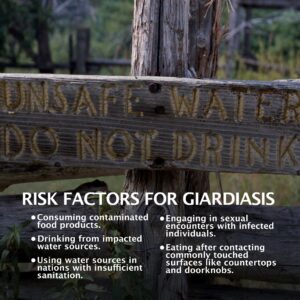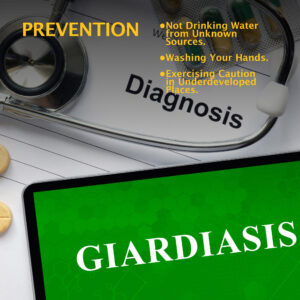
Giardiasis
The gastrointestinal system helps nourish the body by processing the foods and drinks you consume. Unfortunately, occasionally these products become infiltrated with potentially harmful organisms that can cause illness. One such disorder is giardiasis.
Giardiasis Overview
Giardiasis is caused by a parasite known as giardia. This organism is found in animal or human fecal matter that infiltrates ground and water sources. From there, it contaminates the water and soil that it comes into contact with.
Causes
The principal underlying cause of giardiasis is the giardia parasite, also known as Giardia Intestinalis. Though the microbe typically needs a host to survive, its shells can spread infection.
Risk Factors
You increase your risk of contracting this sickness-inducing parasite through several actions, including:
- Consuming contaminated food products.
- Drinking from affected water sources.
- Using water sources in nations with insufficient sanitation.
- Engaging in sexual encounters with infected individuals.
- Eating after contacting commonly touched surfaces like countertops and doorknobs.
Your risk increases if you spend time at or work in heavily populated institutions, such as schools, hospitals, daycare centers, and large office buildings.
You might wonder if you could contract the parasite from your pet. The specific giardia parasite that infects animals is different from the organism that impacts people.
Symptoms
The physical manifestations of giardiasis typically appear anywhere from one to three weeks following infection.
You may be fortunate enough not to develop symptoms. When they emerge, symptoms such as gas, bloating, appetite loss, abdominal pain, nausea, vomiting, and fatigue can be expected. The most common occurrence is diarrhea. Your diarrhea might also be foul-smelling and greasy.
Symptoms linger over periods ranging from two to six weeks. In certain instances, issues might need a longer duration to resolve. Some cases tend to recur.
Complications
Giardiasis is not typically life-threatening. If not correctly diagnosed and treated, the disorder could start potentially significant complications, including:
- Malnutrition: Over time, nutrients rapidly lost during bouts of diarrhea coupled with the diminished food intake produced by a suppressed appetite can lead to malnutrition. Vitamin and nutrient deficiencies can weaken your immune system and increase your risk of contracting other ailments. Over the short term, a decreased nutrient intake can significantly limit your energy levels, adversely impacting both your strength and cognitive capacities.
- Dehydration: Repeated bouts of diarrhea can cause you to lose water, which increases your chances of becoming dehydrated. Water is vital to the body’s normal function. Serious deficiencies can result in significant medical problems needing immediate attention.
- Food Insensitivity: Food insensitivity has been linked to giardiasis. Researchers have found the parasite often leads to lactose intolerance, which causes unanticipated digestive symptoms in persons when consuming dairy products like milk, ice cream, and cheese.
Diagnosis
In most instances, your gastroenterologist will need to examine stool samples before confirming a diagnosis. This is because the parasite can often be found in the fecal matter you produce.
If your stool sample returns inconclusive, your doctor might also order an enteroscopy. During this procedure, a thin camera-equipped instrument is inserted into your small intestines to detect the presence of giardia parasites.
Physicians may also take a biopsy. This done by extracting a small piece of tissue in your digestive tract and submitting the sample to a lab for further investigation.
Potential Treatment Options
A large percentage of giardiasis cases run their course and disappear without extensive treatment.
If you have a moderate to severe case, your doctor might prescribe medications like antibiotics. There is no one specific drug administered. Instead, several substances have proven effective in eradicating the bug. Before prescribing a particular regiment, your age, general health, and the condition’s severity are considered.
Your doctor will urge you to practice home therapies like:
- Remaining hydrated.
- Consuming light, bland foods that will not upset your digestive tract.
- Avoiding alcohol and cigarettes.
- Getting enough sleep.
Outlook
Giardiasis tends to resolve on its own. More severe cases could cause complications that could delay the recovery process or precipitate other health issues.
Prevention
It can be difficult to prevent giardiasis. You can certainly reduce your risk through efforts including:
- Washing Your Hands: Frequently washing your hands using warm water and soap lessens your chances significantly. Hand washing should be performed even more routinely when working in large facilities, with children, or after coming into contact with commonly touched surfaces.
- Not Drinking Water from Unknown Sources: It is strongly discouraged to drink water from sources such as streams, ponds, lakes, and even rivers. Any of these locations could serve as suitable hosts for giardia. It is also important to avoid swallowing water when swimming in these bodies of water. Even the smallest amounts could contain enough giardia to induce illness.
- Exercising Caution in Underdeveloped Places: Physicians highly recommend against drinking water in underdeveloped nations. If you have no other choice, it is imperative to boil, filter, or treat the water with iodine before drinking it or using it to brush your teeth.
Contacting Us
If you believe you have giardiasis, please contact us. Our practice began more than 15 years ago and has emerged as one of the leading gastroenterology practices in central Florida. We perform a host of diagnostic procedures using state-of-the-art equipment in a friendly, comfortable, and inviting atmosphere where patient care is always a top priority. Contact us today!

